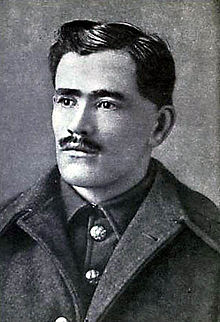
A friend of mine was at a debate recently and among those present was a Church of Ireland minister who was with her in defending Christian schools. She noticed that he was wearing, as expected at this time of year, a small poppy badge, but also the precious feet (pro-life symbol) and, believe it or not, a Pioneer pin (Catholic temperance organisation). We were impressed.
Thinking about this later I had to admire the Vicar, in his badges he harmonised in a Christian way different movements and I wondered would we, in Ireland, have the courage to do the same? The Pioneer pin and the lifestyle which it symbolizes are often mocked today - in a country that cherishes alcohol, and as a result has serious problems with it, abstinence is seen as counter-cultural, judgmental and mean-spirited. Not so in reality, but it is perceived as a negative thing today. The precious feet are like a red rag to a bull in modern Ireland where the establishment is gung ho in its support for abortion and working hard to make Ireland like everywhere else in its embracing the culture of death.
That said, both of these symbols are, for now, somewhat tolerated even if dismissed by "the great and the good". It is the poppy which is the most controversial of all. An Anglican minister will get away with it in Ireland, but woe betide anyone of the Catholic persuasion, that is taboo, forbidden. Why? Because in the eyes of many Irish it is the symbol of British Imperialism, for a Irish person to wear a poppy is to offend the Republic and the struggle for independence.
That narrative, however, is rather blinkered. I doubt if the French, Belgians, Dutch and other countries involved in the two World Wars who incorporate the poppy into their commemoration wreaths are pawns of British Imperialism. Rather, that little flower, which grew in abundance on fields that were torn apart by insane war, has become the symbol of those who now lie in those fields, resting beneath canopies of that floral tribute. Among those dead are many Irishmen, Catholics and Protestant, laymen and the priests who served them, who lost in their lives in conflict. Where the poppy is worn the aspiration that accompanies it is "We shall remember them". Is it a coincidence, I wonder, that this remembrance occurs during a month dedicated to the Holy Souls?
I am inclined to think that the example this Vicar shows is very much a Catholic one: Catholic temperance and reparation, Catholic defence of the unborn and vulnerable, and in his poppy the very Catholic tradition of praying for and remembering the dead, particularly those who died in conflict and tragic circumstances, perhaps not even prepared for death. So while we in Ireland associate Remembrance and poppies with British Protestants, I dare say it is actually much more Catholic than we think. Given the many thousands of Irish who died in the World Wars, who are now finally being acknowledged by the Irish State, will we see a day when wearing the poppy will be accepted, indeed become the norm, in this Republic, in memory of our dead?



